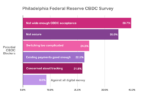Yesterday Banco Central do Brasil instructed Visa and Mastercard not to start processing payments for the WhatsApp application and to cease if they have begun. WhatsApp Pay launched in Brazil this month.
The motivation given by the Bank was to “preserve an adequate competitive environment, which ensures the functioning of an interoperable, fast, secure, transparent, open and inexpensive payment system.”
The central bank raised concerns about the impact on the Brazilian Payment System concerning competition, efficiency and data privacy. It says it needs to assess the risks and compliance with local laws.
Facebook’s unveiling of the Libra digital currency and payments blockchain has triggered a variety of concerns with regulators around the world. One of the aims is to integrate the digital currency with Facebook-owned WhatsApp. Top of the list of regulator concerns is compliance, with privacy also raised as an issue. Arguably competition is the biggest concern of all, with central banks worried that Facebook’s Libra currency could challenge currency sovereignty.
Meanwhile, in Brazil the central bank is launching a 24/7 instant payment system PIX in November. The objective is to improve the efficiency and competitiveness of the retail payment market in Brazil. Hence, the timing of the launch of WhatsApp Pay this month may be an issue.
WhatsApp Pay is planning to launch in other jurisdictions, including WhatsApp’s largest market, India, where it has 400 million users. Two months ago, Facebook invested $5.7 billion in Indian mobile telecoms operator Reliance Jio.
In India, WhatsApp Pay uses the UPI bank-to-bank instant payment system. Until recently, the launch was blocked by the National Payments Corporation of India (NPCI). But in February, it was given the go ahead for a phased rollout of up to ten million users. Given its user base, that is little more than a test.
Some speculated the Reliance Jio investment, which aims to boost ecommerce, could be an advantage in encouraging regulators to raise the limit.







